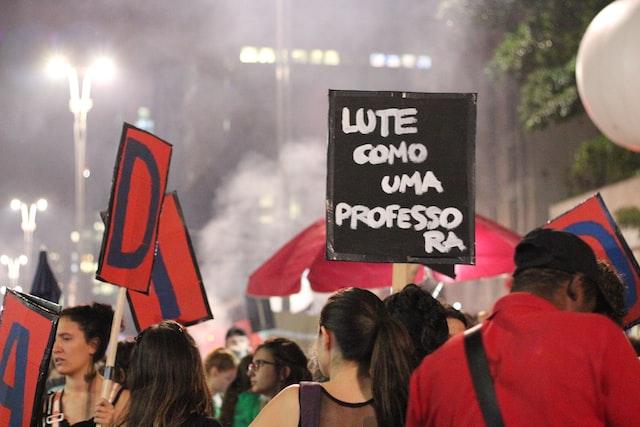
Attack Against Racial Quotas in Brazilian University Communication Department
29/12/2022 - IAMCR, the major international academic professional association in the field of media and communications, with members from over ninety countries, has been active in leading debate on the need to decolonise and de-westernise theory and research in the field. Supporting affirmative action and public policies to ensure greater diversity, equity, race, gender and social inclusion amongst media scholars is central to this initiative.
Brazil, a country with a history of discrimination and racism, has made slow progress in adopting policies to include Black, Brown and Indigenous Brazilians in the student body and faculty of its universities. Law 12.990/2014 – which reserves a quota of 20% for Black, Brown and Indigenous persons – can only be applied if 3 or more posts are offered. Since departments can usually only open one or two vacancies when they need to hire academic staff, the quota laws cannot be applied in many cases.
To help solve this problem, drawing on a decision by the Supreme Federal Court, the Public Ministry of the State of Goiás recommended that departments in the same university can promote their vacancies collectively rather than individually. The Universidade Federal de Goiás (UFG) pulled together five requests for teaching vacancies, reserving the first for a Black, Brown or Indigenous person (meeting the 20% quota). Considered a positive initiative for social inclusion, this procedure started to be followed by other Brazilian institutions.
In 2021, UFG’s Faculty of Information and Communication (FIC) advertised a vacancy under this quota system. FIC’s call for candidates explicitly mentioned that the position was reserved for a Black, Brown or Indigenous person. A Black woman was appointed but a white male applicant protested and took UFG to court. A conservative judge agreed with his plea and endorsed him for the post.
This decision is more than a case of injustice against a person. When a judge questions UFG’s methodology for reserving quotas for Black, Brown and Indigenous staff in universities, it represents a dangerous backlash against policies of affirmative action and reparation in Brazil. Questioning quotas has started to happen elsewhere jeopardising the small progress that has been made to have more diversity amongst media teaching staff in the country.
IAMCR fully supports reparation policies and initiatives to create more diversity and foster gender and race equality among staff in Higher Education in our field in Brazil and elsewhere and calls on this decision to be reversed.
IAMCR members and others can sign a petition (in Portuguese) at https://peticaopublica.com.br/pview.aspx?pi=BR128246&fbclid=IwAR30hgY-8…
The text of this statement was agreed by the Clearinghouse for Public Statements and approved by IAMCR’s president. It applies to the situation at the date of publication, notwithstanding any further evolution. The Clearinghouse processes statements and/or manages the process of signing statements generated by others, that are principally concerned with issues relating to media/communications and where IAMCR members have substantive scientific expertise that provides a basis for seeking to influence discursive or material practice. It publishes statements in line with the purposes of IAMCR as specified in its statutes, notably in article S.2.8: “to defend the professional interests of academic media and communication researchers, to help the improvement of their training, and to promote and defend the freedom and independence of academic work in media and communication research”.